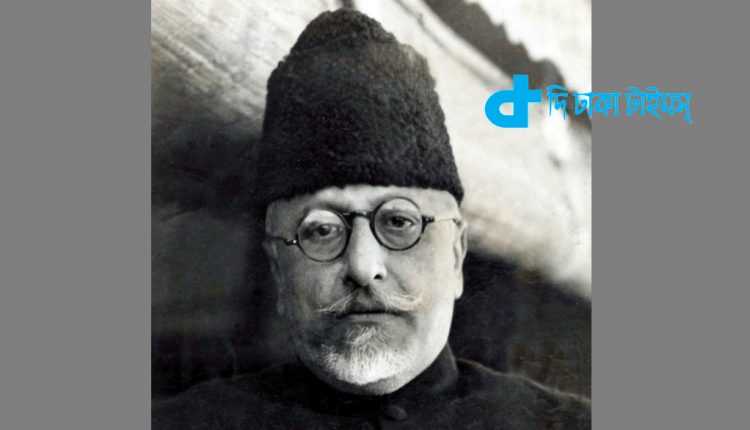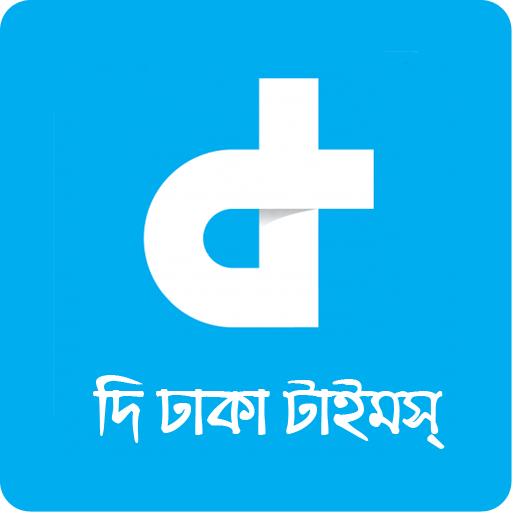The Dhaka Times Desk Maulana Abul Kalam Azad is one of the Indian freedom fighters whose name will be written in golden letters in history.

Maulana Abul Kalam Azad dreamed of a secular independent India. He was a poet, writer, journalist and politician.
His full name is Abul Kalam Mohiuddin Ahmed. He was better known as Maulana Abul Kalam Azad. He was the first education minister of independent India.
Maulana Azad was an exponent of Indian nationalism based on the unity of all religions, castes and communities. He fervently believed that a strong, independent India could be achieved only by ensuring mutual religious coexistence and united efforts. So he has been fighting on the basis of this belief throughout his political career.
Maulana Azad's paternal grandfather, Maulana Munabaruddin, was 'Ruqn ul Mudasrin', originally an educational title. During the Sepoy Mutiny of 1857, Azad's father Khairuddin moved to Mecca and settled there. He married the daughter of a noble Muslim family there. Maulana Azad was born there on November 11, 1888. Then in 1890 his father moved to Kolkata with his family. After Khairuddin died in Kolkata, Azad's family settled in Kolkata.
Maulana Azad's family was religiously very conservative. So his educational career started by receiving religious education in childhood. Khairuddin did not have much faith in the conventional school or madrasa education at that time. So he arranged for Azad's education at home. Maulana Azad studied mathematics, geometry, philosophy etc. in Arabic at home. At some point he also realized the importance of modern education. So he became a devotee of English education and within a short time he became proficient in his own efforts. This time he added 'Azad' to the end of his name, which means free.
Just when Maulana Azad was feeling a bit attracted to revolutionary thought, he came in contact with revolutionary leaders like Shri Aurobindo Ghosh and Shyamsundar Chakraborty and through them he also entered revolutionary politics.
After some time, he traveled to Egypt, Turkey, Syria, Iraq and other countries and met the revolutionaries of those countries. Talking to them, he understood that a revolution must be made for the freedom of India. So after returning to the country he published a newspaper in Urdu called 'Al Hilal' to inspire the people of the country to freedom. This magazine criticized the British and helped create anti-British sentiment by spreading revolution among the people.
Due to which the paper became very popular in a very short period of time and created a milestone in the history of Urdu journalism. Seeing its popularity, the British government seized that newspaper. Later Maulana Azad launched another newspaper called 'Al Balagh' which was also confiscated by the British government. The British government did not see any other way and finally expelled him from Kolkata. Then Maulana Azad went to Bihar. However, Maulana Azad was kept under house arrest there as well. He was released on 1 January 1920 and moved back to Kolkata.
He came to Kolkata and joined the Khilafat movement. At that time, Mahatma Gandhi started the non-cooperation movement. He came in contact with Gandhi because the Khilafat Movement and the Non-Cooperation Movement were running together.
He was arrested along with other Congress leaders when the British government started crackdowns across India due to the movement and was released after two years of imprisonment. During this time he became one of the top Congress leaders and was elected Congress President in 1923 at the age of 35.
Maulana Azad died of a heart attack on 22 February 1958 at the age of 69.
There was a time when there was no difference between Hindus and Muslims in India, today it seems like it is going to be destroyed. The current rulers of India are destroying communal harmony by persecuting Muslims over the Kashmir issue. Bengalis are being disinherited in Assam. In many states of India, the Muslim community is persecuted. But at that time there were Muslim leaders in India who gave equal priority to all religions. It really hurts to think about things.


